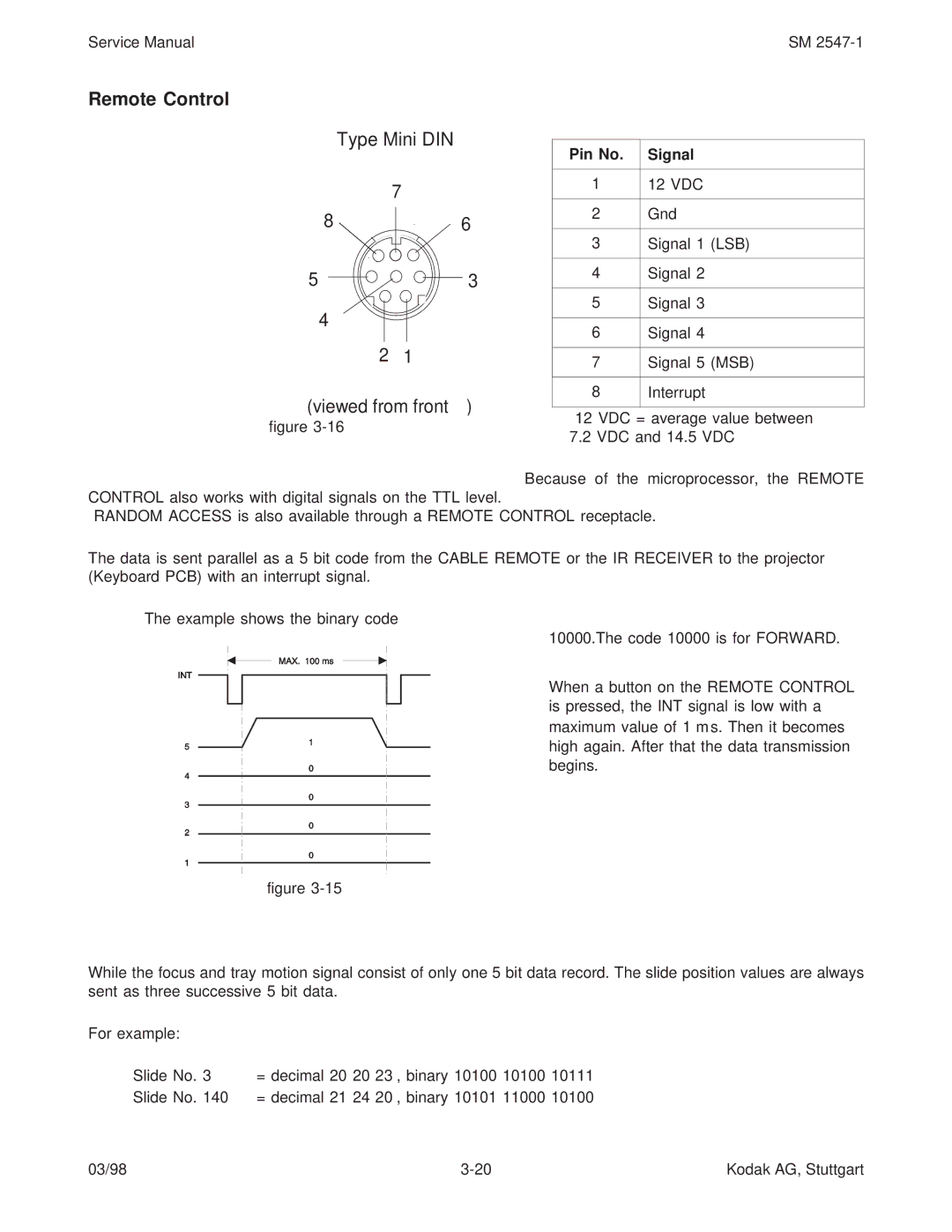
Service Manual | SM |
Remote Control
Type Mini DIN |
| Pin No. | Signal |
|
| ||
7 |
| 1 | 12 VDC |
|
|
| |
8 | 6 | 2 | Gnd |
3 |
| ||
|
| Signal 1 (LSB) | |
5 | 3 | 4 | Signal 2 |
|
| ||
4 |
| 5 | Signal 3 |
| 6 | Signal 4 | |
|
| ||
2 1 |
| 7 | Signal 5 (MSB) |
|
| 8 | Interrupt |
(viewed from front )
figure
12 VDC = average value between
7.2 VDC and 14.5 VDC
Because of the microprocessor, the REMOTE
CONTROL also works with digital signals on the TTL level.
RANDOM ACCESS is also available through a REMOTE CONTROL receptacle.
The data is sent parallel as a 5 bit code from the CABLE REMOTE or the IR RECEIVER to the projector (Keyboard PCB) with an interrupt signal.
The example shows the binary code
10000.The code 10000 is for FORWARD.
When a button on the REMOTE CONTROL is pressed, the INT signal is low with a maximum value of 1 μ s. Then it becomes high again. After that the data transmission begins.
figure
While the focus and tray motion signal consist of only one 5 bit data record. The slide position values are always sent as three successive 5 bit data.
For example:
Slide No. 3 = decimal 20 20 23 , binary 10100 10100 10111
Slide No. 140 = decimal 21 24 20 , binary 10101 11000 10100
03/98 | Kodak AG, Stuttgart |
